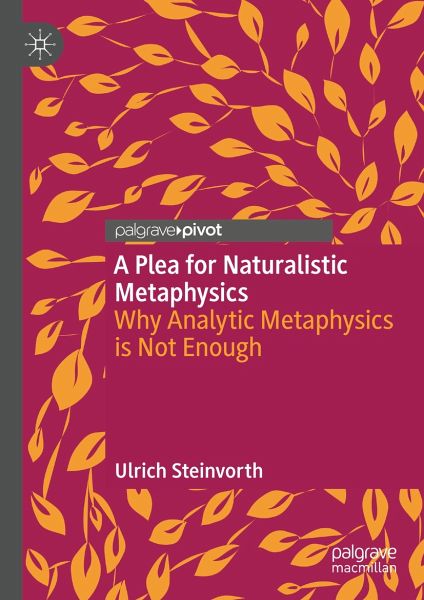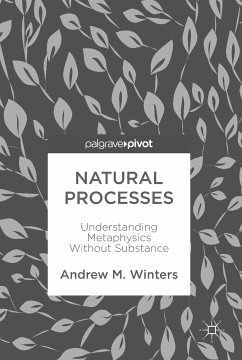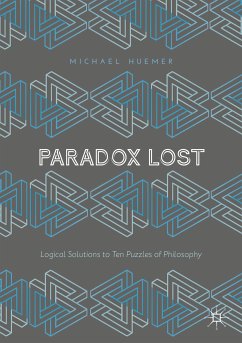
A Plea for Naturalistic Metaphysics (eBook, PDF)
Why Analytic Metaphysics is Not Enough
Versandkostenfrei!
Sofort per Download lieferbar
52,95 €
inkl. MwSt.
Weitere Ausgaben:

PAYBACK Punkte
26 °P sammeln!
In this small book, Ulrich Steinvorth describes the reasons why analytic philosophy, which started as an anti-metaphysical project, has become a strong advocate of metaphysics, and why it must become synthetic, normative, and naturalistic. Steinvorth argues that self-regulation is the common property of all being, that we can talk of an increase or escalation of self-regulation in the evolution of being, and that self-regulation becomes self-determination in man. Considering objections to this view related to questions of free will, consciousness, the naturalistic fallacy, and teleology, he dr...
In this small book, Ulrich Steinvorth describes the reasons why analytic philosophy, which started as an anti-metaphysical project, has become a strong advocate of metaphysics, and why it must become synthetic, normative, and naturalistic. Steinvorth argues that self-regulation is the common property of all being, that we can talk of an increase or escalation of self-regulation in the evolution of being, and that self-regulation becomes self-determination in man. Considering objections to this view related to questions of free will, consciousness, the naturalistic fallacy, and teleology, he draws on cybernetics, dual process theory, physical cosmology, and Leibniz's ("demiurgic") idea of measuring the goodness of a world by the number of possibilities opened up by the world. To test his approach and show its political relevance, he applies it to political liberalism.
Dieser Download kann aus rechtlichen Gründen nur mit Rechnungsadresse in A, B, BG, CY, CZ, D, DK, EW, E, FIN, F, GR, HR, H, IRL, I, LT, L, LR, M, NL, PL, P, R, S, SLO, SK ausgeliefert werden.












